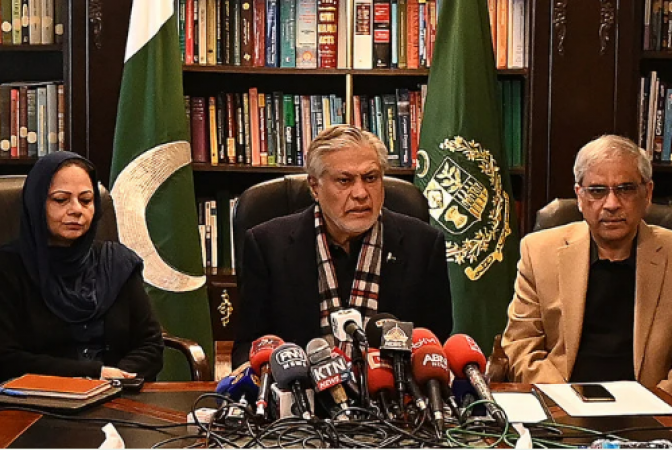
karachi: Finance Minister Ishaq Dar said on Friday that Pakistan and the International Monetary Fund had reached an agreement on the terms for the release of roughly $1.1 billion in crucial funding, adding that the payment was delayed due to "routine procedures."
Dar was addressing the media a few hours after an IMF mission left Islamabad following ten days of negotiations to release the money Pakistan's economy so desperately needs. Since last December, payment of the funds, which are a component of a $6.5 billion bailout Pakistan signed in 2019, has been delayed. Dar stated, "The prime minister has said we're committed. "We will put into practise whatever our teams have decided upon."
The second IMF programme that Pakistan has ever begun will be attempted to be completed, he continued.
Also Read: Trump reclaims grip of his Instagram and Facebook accounts
According to analysts, an IMF agreement opens the door for other organisations and governments to contribute funds, which are required to keep Pakistan from defaulting on its obligations regarding external payments. However, the financial changes required by any agreement are likely to contribute to record-high inflation, which reached 27.5 percent year over year in January.
Dar announced that the IMF negotiations, which were originally scheduled to end on Thursday, would actually continue on Monday in order to reach a staff-level agreement that would then need to be approved by the IMF's headquarters in Washington before the funds could be released.
Also Read: Earthquakes in Turkey and Syria resulted in over 20,000 deaths
Talks are still ongoing, according to a statement from Pakistan's IMF mission chief Nathan Porter, who also noted that significant progress had already been made.
The $350 billion economy of the nation, which is experiencing a balance of payments crisis as its foreign exchange reserves have decreased to less than three weeks' worth of import coverage, depends on the IMF funding. Shahbaz Sharif, Pakistan's prime minister, described the country's economic situation as "unimaginable" last week.
One of the requirements set by the IMF is that Pakistan increase fuel prices and return to a market-based exchange rate.
When asked about additional measures, Dar responded that Pakistan would increase fuel prices gradually, wouldn't tax sales of petroleum products, and was thinking about introducing a new finance bill. He said nothing more in-depth.
Dar added that his administration would discuss the fund's reform recommendations for the energy industry.
Earlier, officials from the finance ministry had told Reuters that the government and the IMF were debating how to handle the almost $15 billion in government debt owed by the energy sector.
According to them, Pakistan submitted a plan to gradually reduce its debt through price increases and dividends from gas companies, but the IMF demanded a more defined course of action. The remaining $1.4 billion of the $6.5 billion, in addition to the stalled tranche,